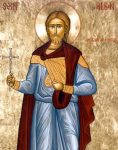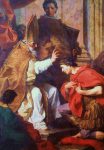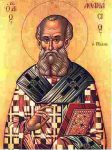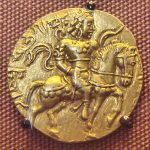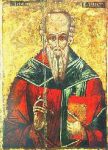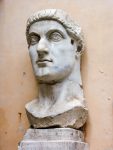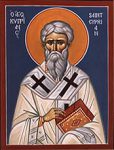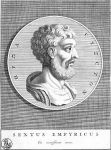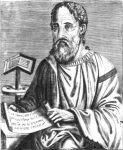Roman soldier and Christian Saint. He became the first Christian martyr in Britain.
Roman Catholic Bishop and later Saint. Ambrose resisted Arianism, the doctrine that Christ was of similar but not identical substance to God, which critics felt compromised monotheism. He also introduced the notion of "cardinal virtues."
Philosopher. He was the father of Neoplatonic philosophy, a form of philosophical mysticism, but no written work survives. (See Plotinus, his more famous pupil.)
Christian Hermit and later Saint. He sold all his possessions at twenty to give to the poor and entered into a life of strict solitude in the desert of Egypt.
After several decades, during which he reportedly experienced and overcame repeated temptations by the devil, he founded a monastic movement whose influence quickly spread. Members of the movement, often called anchorites, typically rejected books, learning and knowledge, and, in addition to seclusion, emphasized the most resolute asceticism. At its extreme, this meant self-starvation, wearing the same clothes until they rotted, never bathing or cutting hair, living in holes and old wells, carrying weights, or exposing oneself to venomous insect stings.
St. Antony did not indulge in the most violent penances, (although he reputedly never washed his feet), but his followers seemingly strove to outdo one another in self-immolation.
Theologian. He founded Arianism, the doctrine that Christ was of similar but not identical substance to God, and therefore subordinate. Arianism was sharply and successfully opposed as a form of polytheism by St. Athanasius and others at the Council of Nicaea, but remained influential for many years, especially in the Eastern Mediterranean. It still has an echo in contemporary Unitarianism.
Christian Bishop, persistent opponent of Arianism, and later Saint. The Athanasian Creed reflected his insistence on Christian monotheism, with Father, Son, and Holy Spirit identical and thus one God.
Christian theologian and poet. He expressed a Christian gnosticism.
Christian Bishop, Saint. He lived an Ascetic life in the desert for a time, later became a Bishop, and zealously guarded Christian monotheism against the Arian heresy (see Arius).
Gupta emperor. The high culture of India especially flourished during his long reign.
Emperor. He made Christianity the official religion of the Roman Empire.
He chronicled early Christianity.
